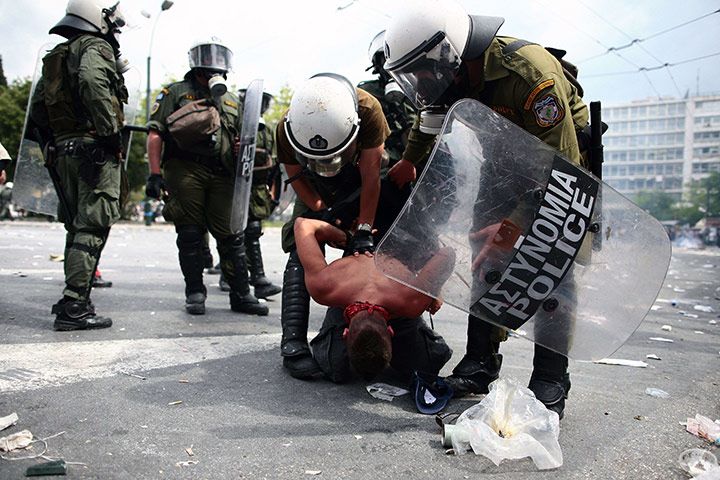La Source - Ingres, c. 1820-1856 / Une visite au Louvre - Straub-Huillet, 2004, 35mm
By setting out to paint the ideal virgin, [Ingres] hasn’t painted a body at all. And it's not because he couldn't. Just think of his portraits and that Age of Gold that I like so much. It's because of the idea of a system. False system and false idea. David killed painting. They introduced the hackneyed formula. They wanted to paint the ideal foot, the ideal hand, the perfect face and body, the supreme being. They banished character. What marks out the great painter is the character he lends to everything he touches, impulse, movement, passion, for it’s possible to be both passionate and serene. They’re afraid of this, or rather they never dreamt of it. In reaction, perhaps, to all the passion, the tempests, the social brutality of their time.
--Paul Cézanne, in Joachim Gasquet's Cézanne, A Memoir with Conversations (written 1912-13, pub. 1921; Thames & Hudson, 1991), p.178.
'He knows neither how to sing, nor how to philosophize', wrote Zola in praise of Manet. 'He knows how to paint, and that is all.' Some critics and artists went so far as to assert that sheer ignorance or lack of formal training were positive assets for the artist. Laforgue proposed that the academies should be shut; Courbet refused to set himself up as a professor, declaring that art could not be taught; Pissarro, in an unguarded moment, even suggested that they burn down the Louvre.
--Linda Nochlin, Realism (Penguin, 1971), p.36.
We went on to discuss Russian literary policy. I said, referring to Lukács, Gábor and Kurella: 'You can't put on an act with people like this.' Brecht: 'You might put on an Act but certainly not a whole play. They are, to put it bluntly, enemies of production. Production makes them uncomfortable. It cannot be trusted. You never know where you are with production; production is the unforeseeable. You never know what’s going to come out. And they themselves don’t want to produce. They want to play the apparatchik and exercise control over other people. Every one of their criticisms contains a threat.'
--Walter Benjamin, with Bertolt Brecht, Aesthetics & Politics (Verso, 1980), p.96-97.
In every true work of art there is a place where, for one who removes there, it blows cool like the wind of a coming dawn. From this it follows that art, which has often been considered refractory to every relation with progress, can provide its true definition. Progress has its seat not in the continuity of elapsing time but in its interferences — where the truly new makes itself felt for the first time, with the sobriety of dawn.
--Walter Benjamin, The Arcades Project (Harvard UP, 2002), p.474.
L'Origine du monde - Gustave Courbet, 1866, oil on canvas


























































